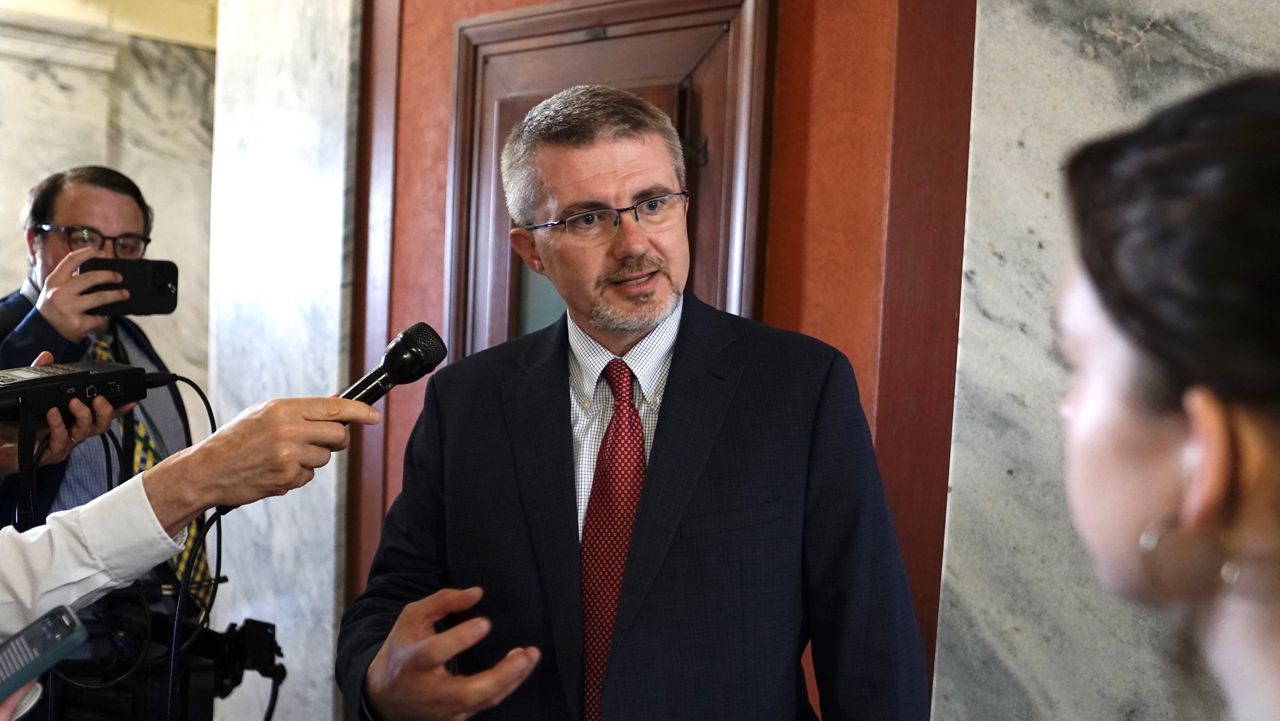FRANKFORT, Ky. — Kentucky Education Commissioner Robbie Fletcher is new on the job and already promoting an ambitious agenda that includes developing a new statewide system to track student achievement and the performance of public K-12 schools.
Schools and others are being asked to provide input for revising Kentucky’s assessment and accountability system, Fletcher told a legislative panel Tuesday, weeks after starting his tenure. A stakeholders group will weigh options and could make recommendations sometime after the 2025 legislative session, said Republican state Rep. James Tipton.
“We want to build a prosperous Kentucky, and we will launch an accountability system that is meaningful and useful to all of our learners,” Fletcher told the panel.
Fletcher said he also wants to work on potential changes to the state’s main funding formula for schools to achieve a better balance between property-poor and property-rich districts, he said.
Fletcher also reiterated his commitment to work closely with state lawmakers — a pledge he made in the spring as he won overwhelming state Senate confirmation to become education commissioner.
“We’re not going to agree on everything,” he told the legislative panel on Tuesday. “But I hope we can have those face-to-face conversations to discuss how we move forward together. And then at the end of the day, we can still have dinner together afterward.”
Fletcher’s predecessor, Jason Glass, had a tumultuous stint while guiding schools through the COVID-19 pandemic and clashing at times with GOP lawmakers. Fletcher became education commissioner in July after spending a decade as superintendent of Lawrence County schools in eastern Kentucky. He started his career as a math and science teacher before becoming an assistant principal and then a principal.
Fletcher broadly outlined priorities but gave few details on Tuesday. As the chief state school officer, the commissioner’s roles include recommending and implementing Kentucky Board of Education policies.
Fletcher said he wants to encourage classroom innovations while emphasizing basic fundamentals.
Kentucky students showed some improvement on statewide tests taken in the spring of 2023, especially in elementary schools, but considerable work remains to get back to pre-pandemic levels.
The results, released last fall, showed elementary to high school students were still struggling across a range of core subjects, which is linked to schools’ pandemic-era shift to virtual learning to try to keep people safe. Those struggles reflect a nationwide problem of lagging academic achievement, prompting extensive efforts to help students overcome the setbacks. Fletcher suggested a change in the testing schedule.
“How much different could education be if we didn’t have to wait until the fall to get test results?” he said. “What if we gave the test in the fall, in October, and it changed instruction the next day?”
Fletcher said he’s a fan of using national comparisons, especially in math, reading and science.
And he stressed the role of schools in helping guide children toward their potential.
“We have to teach our kids, so often, that they have tremendous potential,” he said. “We want to teach them to dream. We want to give them opportunities to dream. But also, too, we have to give them opportunities to struggle. Life is tough. We need to lift them up. We need to give them opportunities to grow, to learn, to struggle.”



